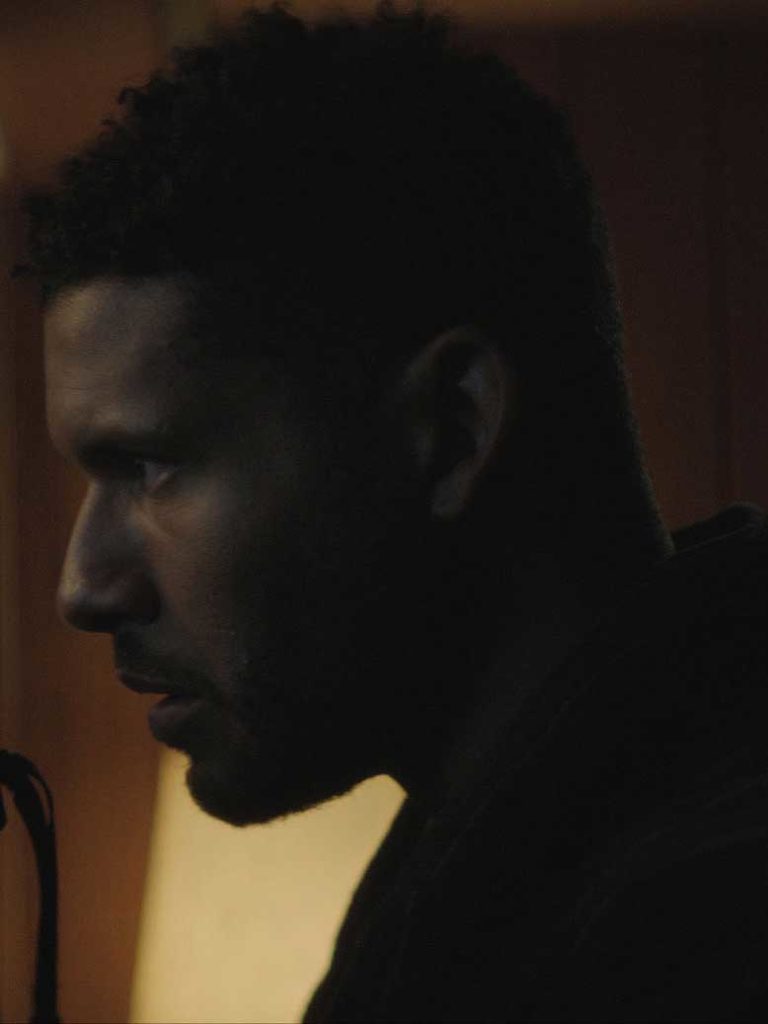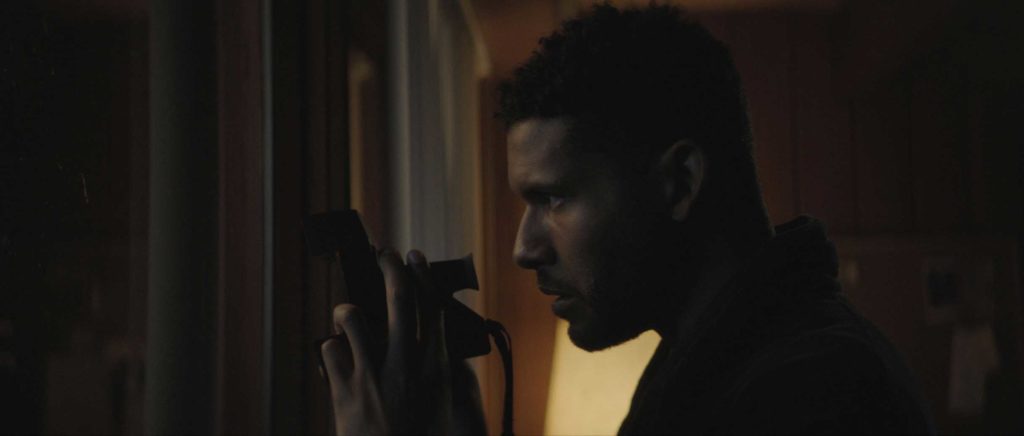
Director: Kurtis David Harder
Writers: Colin Minihan, John Poliquin
Cast: Jeffrey Bowyer-Chapman, Ari Cohen, Jennifer Laporte, Lochlyn Munro, Chandra West
Producers: Chris Ball, Kurtis David Harder, Colin Minihan, John Poliquin
Cinematography: Bradley Stuckel
Cert: 15 (TBC)
Running time: 90mins
Year: 2019

What’s the story: Same-sex couple Malik (Bowyer-Chapman) and Aaron (Cohen) move to a small town to raise their 16 year-old daughter Kayla (Laporte). But, is the supposed idyll hiding something ominous?

What’s the verdict: Spiral walks a narrowing line in hinting at the insidious attitudes that subsist in small town America, and as a character study of a man with more reason than most to fear them.
It’s 1995, and freelance ghostwriter Malik and partner Ari have moved to the idyllic town of Rusty Creek, with Ari’s teenage daughter Kayla. Malik is both gay and black, which marks him doubly as an outsider in a place whose liberal attitudes may only be skin deep.
Neighbours Marshal (Munro) and Tiffany (West) seem sincerely welcoming, but are sinister forces afoot? A sour-faced old man glowers at the house from the edge of their property. Malik returns home to find a message waiting for him and his family – one he quickly paints over before anyone else can see.
What seems like a three-hander quickly focuses on his perspective: with Ari away at work and Kayla only interested in her job and her hunky new boyfriend, Malik is isolated. He becomes obsessed with the murder-suicide of a lesbian couple who died a decade before.
Is something even more chilling at play – perhaps involving a spiral symbol – or is this just psychological fallout from a tragedy Malik experienced in his youth?
Much in the way of Get Out, arguably the touchstone for current American horror, Spiral is about what it’s like to feel you don’t belong, that people are looking at you.
But, director Harder’s take is more subtle and disorienting, if not as immediately striking.
Malik and Ari make for a cute couple, and the careful tone of domestic normalcy evoked in the early scenes is subtly and cruelly undermined as the family unit dissolves in the wake of Malik’s paranoia. Colin (It Stains the Sands Red) Minihan and John Poliquin’s script explores how the fear of homophobia and racism still lurks at the intersections of American life, where middle-class enclaves might be traps more than sanctuaries.
An on-the-nose ending undermines the uncertainty of what’s come before, but feels like a necessary commitment: how can we ever overcome, if we don’t know what it is we’re facing?
Indie horror doesn’t get much sharper or more socially aware than this.
Rob Wallis
Twitter:@robertmwallis
Website:www.ofallthefilmsites.com
Podcast: The Electric Shadows Podcast
